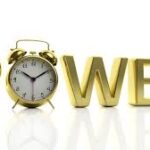Schultz Power Hour: Do These 10 Things
George Shultz passed away last month at the ripe old age of 100. He held four cabinet level positions for three different presidents. As Dan Pink quips in his recent podcast,” The guy just couldn’t hold a job.”
For followers of this blog, both Pink and Shultz are familiar names. Pink is the author of influential books like Whole New Mind and Drive: What Really Motivates Us. In our Adaptable Leader program, we show a YouTube clip of Pink highlighting the main points of Drive. The science he recounts makes the case for intrinsic rewards, like sense of purpose and competency, really being the drivers of how we behave. Providing intrinsic rewards, and knowing the limitations of extrinsic ones, is a cornerstone of that program.
I wrote a post about Shultz in 2017 and how his weekly hour dedicated to planning and goal setting was similar to what we call the Power Hour in our time management training. We came upon the Power Hour independent of Shultz’s practice. With our Power Hour we emphasize the importance of not ignoring those tasks that are important, but not urgent, or in quadrant two of Covey’s matrix. https://www.tildensst.com/2017/04/24/the-power-hour/
As we hit the one-year milestone of the pandemic and all of the tragedy and disruption that has gone with it, Pink ponders that the Shultz Hour (aka Power Hour) has never been more important. Pink is obviously a smart guy making a Malcolm Gladwell kind of contribution by interpreting what can be dense science into understandable bites and underscoring their relevance. Prompted by Pink’s observation, it is my purpose in this post to invite you to look up from your phone and turn off social media for one hour a week.
Famously, Shultz would close his door and tell his secretary (today’s Admins) that he didn’t want to be interrupted for an hour unless one of two people called: President of the United States or, more importantly, his wife. Many of the people I coach today don’t have admins, or even doors to close. No matter. Once a week, find a place where you won’t be interrupted for an hour. This may be at home or a place like Panera.
Then, do the following:
1. Turn off your phone.
2. While Shultz would only use pencil and paper, you may want to use your computer to aid your thinking. But please don’t check the news or social media.
3. Ask yourself the following:
a. What went really well last week?
b. What didn’t go so well?
c. What can I learn from a & b?
d. What made feel really good? How can I do more of it?
e. What made me feel lousy? How can I avoid more of it?
4. Were there any crises last week that could have been avoided with better planning?
5. Are there any crises I can anticipate for next week that I can alleviate with better planning?
6. How am I progressing on my long-range work-related goals?
7. How am I progressing on my long-range personal development goals?
8. What are my goals for next week? (these should be both work-related and personal development)
9. How did I do with my weekly goals?
10. If there is time left, devote it to daydreaming. We need more of that.
George Schultz was a high performer, Dan Pink’s satire notwithstanding. Following Schultz’ practice of dedicating an hour each week to the ten points listed above is sure to boost your performance. As a bonus it will reduce the stress that comes with crises.


Arnie, good stuff and wise observations, will give it a try..Always looking for someway to grow personally and professionally.
Steve – Thanks for the comment. Glad you will try the Power Hour. Always hear good things from people who try it. Let me know. Arnie